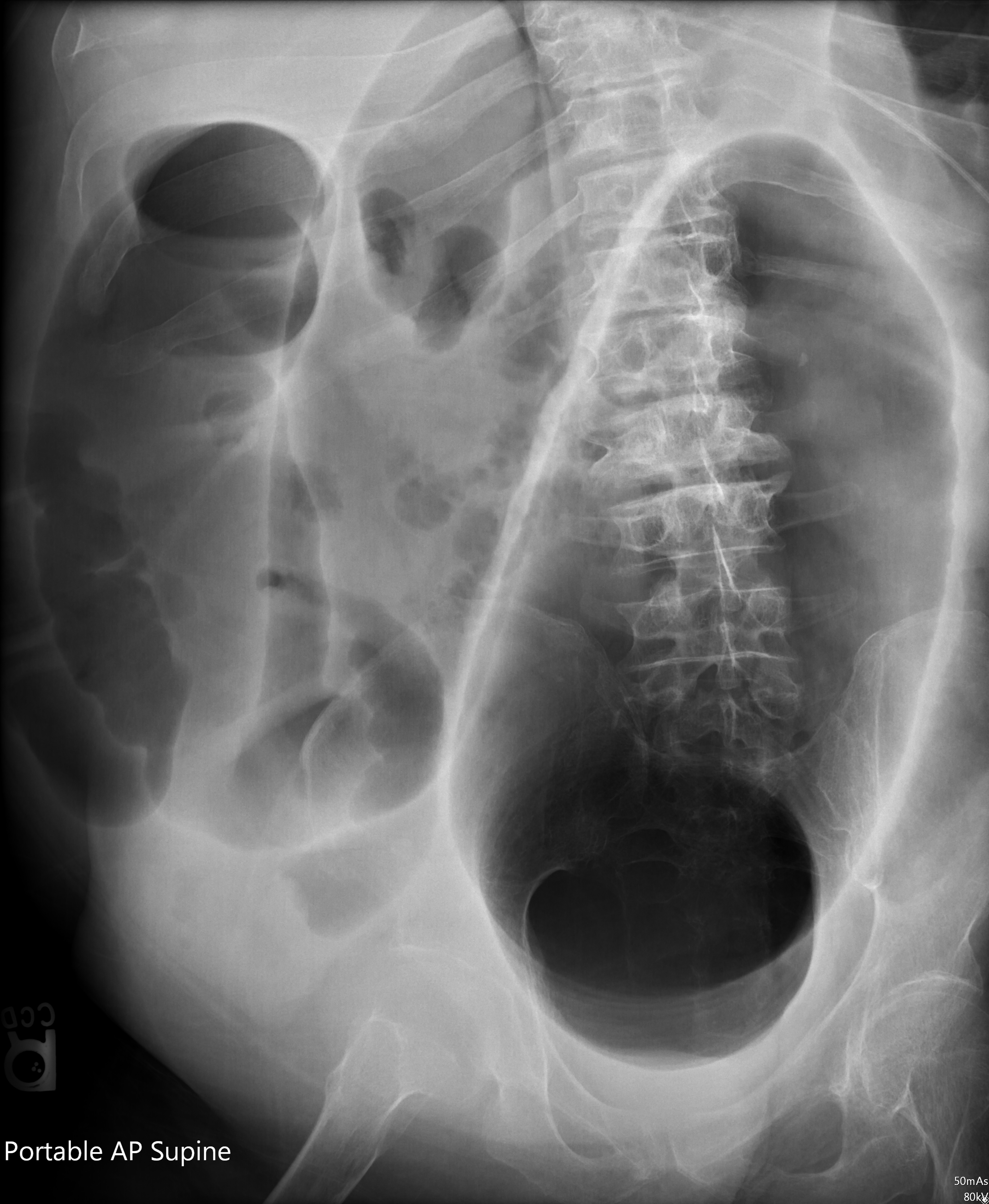Case Presentation: A 59 year-old male with intellectual disability presented with abdominal pain and distension following a fecal impaction. Imaging revealed diffuse gaseous colonic distension with colonic wall thickening suggestive of inflammatory colitis and colonic ileus without obstruction. His labs were notable for severe hypokalemia (1.5 mmol/L) and mild hypomagnesemia. Despite empiric antibiotic course, imaging demonstrated persistent colonic pseudo-obstruction (Ogilvie’s syndrome). He continued to have refractory hypokalemia, with normal magnesium levels, despite parental potassium chloride supplementation amounts as high as 320 mEq daily. His gastrointestinal losses did not fully explain the hypokalemia as he alternated between having diarrhea and constipation. Urine studies on multiple occasions were also inconsistent with renal losses as a cause.
Despite total parental nutrition (TPN) due to poor oral intake, additional parental potassium repletion was required to correct his hypokalemia. Spironolactone was initiated, which in combination with significant oral potassium supplementation, led to stable serum potassium levels. His oral intake improved after rectal tube decompression and he was able to be weaned off of TPN and ultimately discharged.
Discussion: Acute colonic pseudo-obstruction manifests as classic (constipated) or secretory diarrhea variants. Secretory diarrhea variant has been explained by upregulation of potassium channels within the colon that causes excess luminal excretion of potassium and associated diarrhea. Our patient had severe, refractory hypokalemia without overt gastrointestinal (GI) losses or renal potassium wasting.
Ultimately, it was determined that his refractory hypokalemia was due to GI losses despite minimal episodes of diarrhea as he required decompression, which evacuated over 2 liters of liquid stool when performed. This confirmed the secretory diarrhea was pooling within the distended colon due to diminished colonic peristalsis. The potassium channels within the colon are theorized to be upregulated by aldosterone, which is driven by volume depletion. Prior case studies have utilized aldosterone antagonists to improve the secretory diarrhea and refractory hypokalemia by inhibiting these channels. Therefore, spironolactone was initiated and slowly his hypokalemia improved, although he still required significant oral repletion at the time of discharge to maintain a steady serum level.
Conclusions: In acute Ogilvie’s syndrome, patients may manifest with secretory diarrhea driven by hypersecretion of potassium within the colon, which contributes to associated refractory hypokalemia. Hospitalists should be aware of this variant of colonic pseudo-obstruction and consider the use of aldosterone antagonists in these patients to improve the associated secretory diarrhea and help stabilize serum potassium levels.

